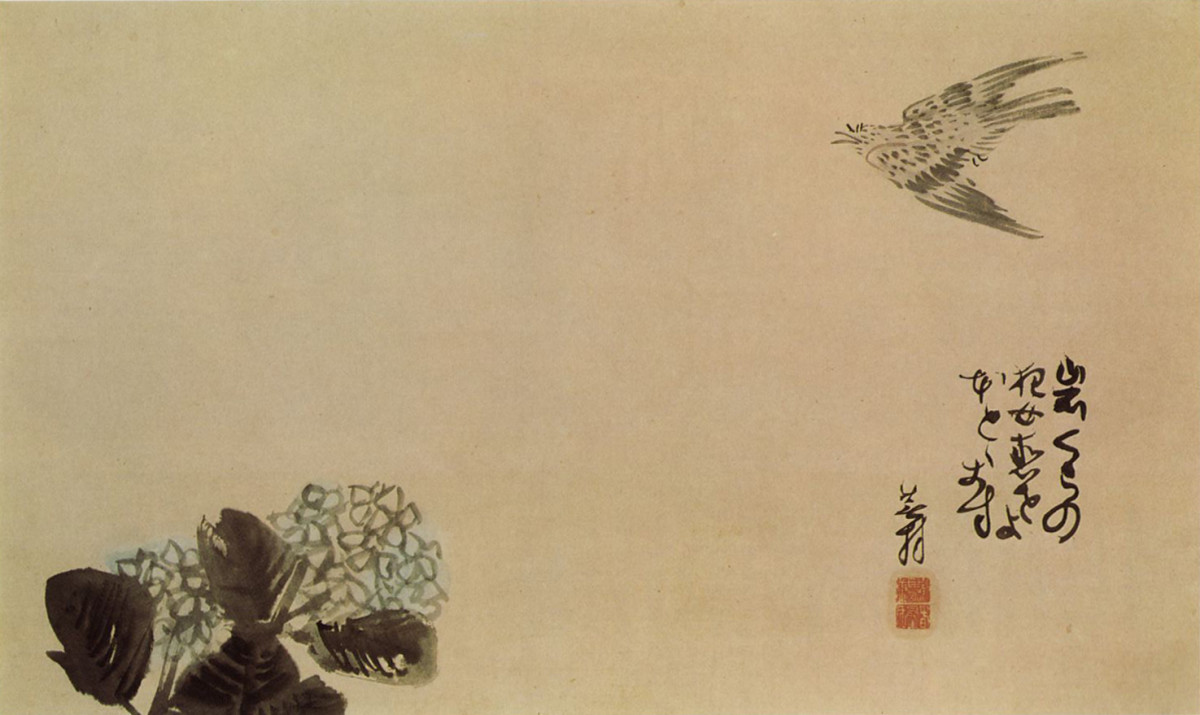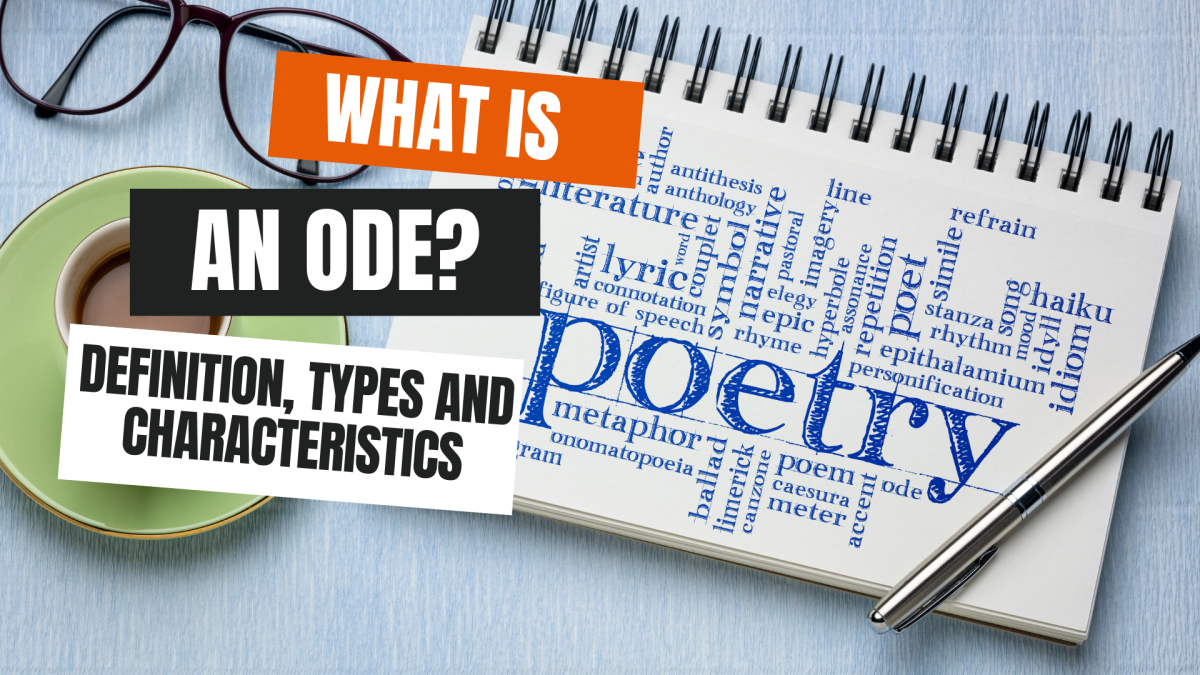Wilfred Owen: Poet in the Horrors of War
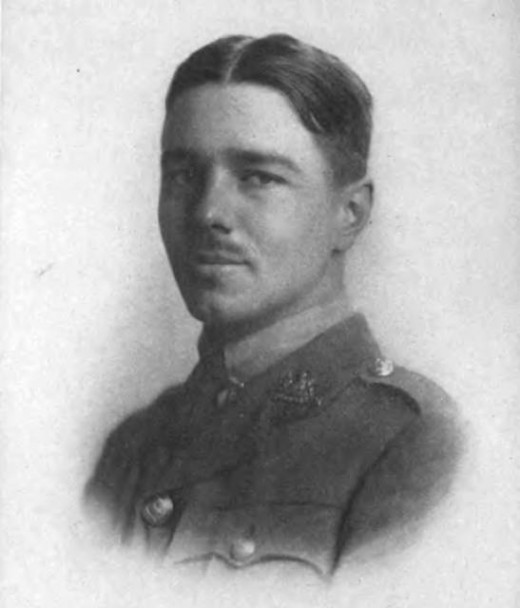
The “Great” War –World War One– was possibly the most horrific human conflict in man's history, argued only by the war in Vietnam. Trenches, Gas, slaughter & shell-shock. A war stretching from Russia to France, from Kenya to Britain –not to mention the sea battles around the globe. Yes, there were millions upon million of more casualties during WWII, however, the chaos of trench-warfare is undeniable.
Within that massacre, within that psychosis, was one of the greatest poets of all time, and my favorite poet. Wilfred Owen, the poet only dwarfed by Charles Bukowski in my view. World War I turned out over a dozen poets, but Mr. Owen is pretty universally seen as the greatest of the bunch.
Wilfred Owen, born in England in 1893, lived the normal care-free life of a youth, going to school & taking vacations. He was heading towards a success story of intelligence, learning romantic poetry, studying Old English, Botany & French, later becoming a tutor of English & French in France itself.
In 1915, the Great War coming into full swing, Owen voluntarily enlisted into the British Army (the Artists' Rifles Officers' Training Corps) –at the youngster's age of 21. Seven months later, Owen was commissioned as a Second Lieutenant of the Manchester Regiment. Arriving at the front in France, Wilfred was an optimistic man, cheerful, ready to fill the ranks with moral. Being a refined young man, Owen looked down of the soldiers he served with, calling them “expressionless lumps”, due to their uncivilized demeanor. But that high-class lens would soon become cracked.
Soon after getting to the mix of his fellow countrymen, Owen would be shocked, two traumatic shocks that would rock his psyche.
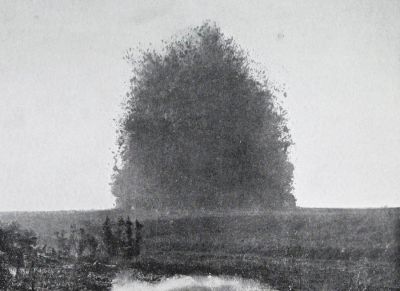
In the trenches of hades, a German mortar landed under his feet and he was tossed into the air like a lifeless rag doll. Owen should have landed in mud or upon rock, but rather his uncontrollable fall landed him on flesh, on the maimed & lifeless body of a fellow officer; swimming in the blood of his likeness. Somehow, Wilfred psychologically survived this event which could cause psychosis for an onlooker. But his next experience of the horrifically-famous trench-warfare would not allow him to be so lucky. After a failed assault on the German lines, Wilfred found himself alone; trapped in an old foxhole in the middle of no-man's-land, stuck between friend & foe. Owen remained there for days; artillery landing all around him, bullets flying over his head, unable to drink, eat or sleep, clinging to the mud for help.
Owen was miraculously rescued from that “seventh [circle of] hell.” However, he was far from the man he was. Owen was transported back to England and straight into a War Hospital with the obvious diagnosis of Shell-Shock, a mental break due to the horrors of war.
Whether from will-power or electric-shock treatment, Owen recovered from those events. During his recovery, Wilfred met the poet Siegfried Sassoon. Owen had experimented with poetry back at the age of 17, but his friendship with Sassoon –also a soldier– allowed him to reenter the realm of stanzas. Using a style of realism, Sassoon greatly influenced Owen. One biographer has submitted that Owen and Sassoon were lovers, and there has been some discussion that Owen was a homosexual. This of course, does not define Owen, but is a relevant aspect of his life if true.
After recovering, Owen became a high school teacher in Northern Ireland. However, shortly after, Owen returned to military duty (though as homeland status), being posted at a command depot in England. Wilfred wrote several poems at this post, poetically documenting his experiences.
Wilfred, due to his shell-shock, was allowed to remain on homeland status (home-duty) indefinitely. However, shockingly & amazingly, in July of 1918, Owen voluntarily returned to active duty and was shipped back across the channel to France. Owen saw it as his patriotic duty to replace his friend Sassoon on the front lines, who was shot in the head via a supposed friendly-fire incident (surviving & on sick-leave for the remainder of the war).
Sassoon was fervently against Owen's wish to return to the lines and even threatened to give him a “stab in the leg” if he tried. Owen didn't make Sassoon aware of his return to active duty until he was already in France.
On the 4th of November, 1918, Owen (as a First Lieutenant) partook in the Battle of Sambre in northern France. The objective for his group was to cross a field out of the front lines, reach a canal and breach that canal, taking it from the Germans. It was ready for any assault, defended with many machine gun pits and rifles aimed at the ready.
Wilfred was part of the head of the assault, charging across the field towards the enemy lines. The Second Manchester's, who Owen was a part of, lost their commanding officer early in the charge, and Owen took up the command and courageously led his men forward against all odds. Firing his pistol at the enemy, his men dropping all around him, Wilfred made it the the canal and overtook a German machine gun. Quick on his feet, Owen turned the gun around and poured a belt of German bullets into German men, inflicting mass casualties by himself.
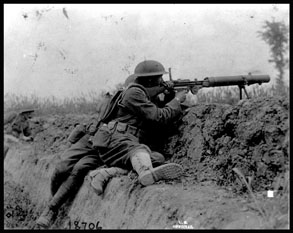
Through the blaze of bullets flying forth from the gun, another bullet, destined, ripped through Owen's skull, killing him instantly during his hight of military courage & glory.
Wilfred Owen, a man that will forever echo through literary & military history, died suddenly on November 4th, 1918 –exactly one week before the end of the war– at the age of 25.
One week later, Owen's worried mother, Mrs. Susan Owen, received the news of his son's death while Church bells celebrated the end of the war –the victory.
Owen would receive, following his death, what he most coveted, the British “Military Cross.” Many of his poems would be published after his passing and his name as one of the great poets carved into the stone of poetry genius.
Owen's poems detailed the horrors of war, the nightmares before his eyes, in a sweet & comfortable style. Most people on the home front saw war as romantic, brave or courageous, leaving it at that, cheering on the departing young men as patriots & lover-boys as confetti & kisses rained around them. Owen thought the same at first, but, as seen, quickly found the truth first hand. Knowing the layman's fantasy, Owen wishes to educate the populace on the realities of war.
“Gas! GAS! Quick, boys! -- An ecstasy of fumbling
Fitting the clumsy helmets just in time,
But someone still was yelling out and stumbling
And flound'ring like a man in fire or lime. --
Dim through the misty panes and thick green light,
As under a green sea, I saw him drowning.
In all my dreams before my helpless sight
He plunges at me, guttering, choking, drowning.”
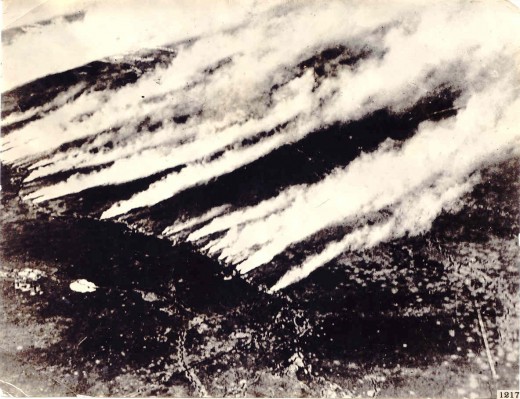

Owen bore witness to the untellable nightmare of mustard gas, and told the tale in unimaginable calmness. My great-grandfather likewise experienced the green fog of the gas. He was, like that young lad, unable to get his mask on in time. Unbelievably, he survived, unlike the most such as that poor youth above.
“What passing bells for these who die as cattle?
Only the monstrous anger of the guns.
Only the shuttering rifles' rapid rattle
Can patter out their hasty orisons.
No mockeries for them; no prayers nor bells,
Nor any voice of mourning save the choirs, --
The shrill, demented choirs of wailing shells;
And bugles calling for them from sad shires.”
Indeed did Owen put the sights of madness into the hearts of the innocent. Indeed did Wilfred put the sounds of sorrow into the minds of the deaf. He watched as lines of lads were sent to their slaughter, saw his friends pointlessly driven to massacre –like cattle, like cattle.
Owen not only saw such things, but understood them, realized that men were expendable to their officers. He saw his country as the killers, his government as the one signing their death warrants. And he was not afraid to say so.
In one poem, entitled “Parable of the Old Men and the Young”, Owen uses the Biblical story of Abraham's (Abram) attempted sacrifice of his son Issac to illustrate a point.
“[...]lo! An angel called him out of heaven,
Saying, Lay not thy hand upon the lad,
Neither do anything to him. Behold,
A ram caught in a thicket by his horns;
Offer the Ram of Pride instead of him.
But the old man would not so, but slew his son...”
Owen knew that it was men's (officers & leaders) “pride” which sent wave after wave of men to certain death, rather than be content with a stalemate.
One of Owen's most famous poems, “Dulce et decorum est”, shows the unceremonious act of tossing the body of a fellow Brit into the back of a wagon. Wilfred ends the poem, saying:
“The old Lie: Dulce et decorum est
Pro patria mori.”
The ancient Latin phrase means: “It is sweet and fitting to die for one's country.”
Owen saw no sweetness in being tossed into a cart like garbage, saw no honor, no fitting end, to a young man dying the death of an animal.
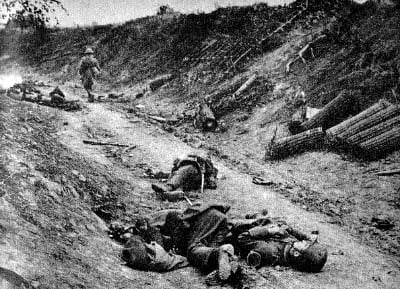
Wilfred Owen, whom I discovered when learning poetry in Middle-School, made a quick impression upon me. Later I realized that he unconsciously remained with me. A poem I wrote a decade later about a chemical-weapon's attack by a terrorist, ended with “Let us sleep now.” Only later did I realize that Owen's poem entitled “Strange Meeting” (about meeting a soldier in hell that he had killed) ended with the line “Let us sleep now...”
Wilfred Owen will, outside of Bukowski, always remain my favorite poet of all time.
Wilfred, you can sleep now...



